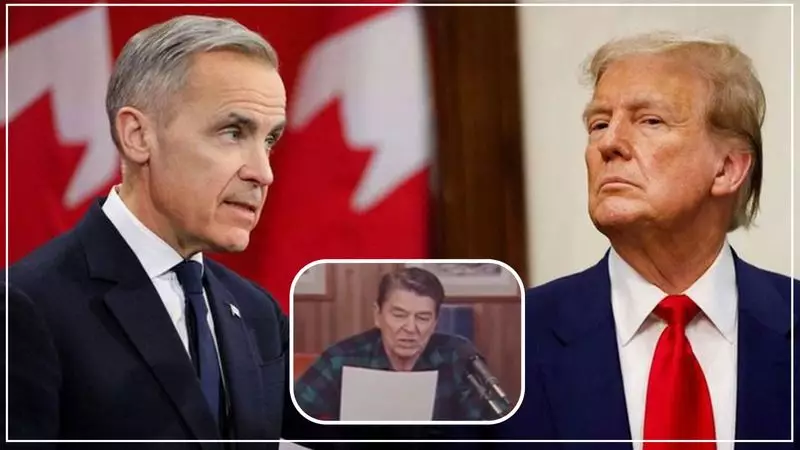
A political advertisement released by Canada's Liberal Party has ignited a diplomatic firestorm, forcing Prime Minister Justin Trudeau to issue a formal apology to former US President Donald Trump. The controversial ad, which directly targeted the Republican leader, has stirred intense debate and created unexpected tensions between the two neighbouring nations.
The Advertisement That Crossed the Line
The inflammatory political spot, created by Canada's governing Liberal Party, took direct aim at Donald Trump's policies and political stance. While political advertisements targeting foreign leaders are not entirely uncommon, the blunt nature and timing of this particular ad raised eyebrows across international borders and diplomatic circles.
Political analysts suggest the advertisement was intended to draw clear political distinctions ahead of domestic Canadian elections, but the strategy appears to have backfired spectacularly. The ad's content was deemed sufficiently provocative to require direct intervention from the highest levels of Canadian government.
Diplomatic Fallout and Immediate Consequences
The immediate aftermath saw Prime Minister Trudeau taking the unusual step of personally apologising to the former US President. This move underscores the seriousness with which Canadian officials viewed the potential damage to bilateral relations between the two North American allies.
The incident highlights the delicate balance political parties must maintain when referencing foreign leaders in domestic political campaigns. While domestic political messaging often involves criticism of international figures, this case demonstrates there are boundaries that, when crossed, can have real diplomatic consequences.
Broader Implications for Canada-US Relations
This controversy emerges at a particularly sensitive time in Canada-US relations, with numerous cross-border issues requiring cooperation and mutual respect between the two governments. The need for Trudeau's apology suggests Canadian officials are concerned about maintaining functional working relationships regardless of which political party holds power in the United States.
The incident serves as a stark reminder that in an increasingly interconnected world, domestic political messaging can quickly become international news, with potential consequences for foreign policy and bilateral relationships. Political strategists worldwide will likely study this case as a cautionary tale about the risks of incorporating foreign leaders into domestic political campaigns.
As both nations navigate complex political landscapes, this episode underscores the importance of maintaining diplomatic decorum even amid heated domestic political debates. The swift apology indicates Canadian leadership recognises the long-term value of stable US relations outweighs any short-term political gains from controversial advertising.





